Building muscle is the foundation for a strong life - Olivia on the importance of fitness for menopausal women
Olivia, founder of the meno Move program, explains in an interview why menopausal women should see muscle building not just as a workout, but as a fundamental investment in their health.
Olivia, you emphasize how important muscle building is for women. Why do you think this topic is often underestimated?
I think it's because muscle building has long been associated with a male-dominated image of fitness - big muscles, dumbbells, bodybuilding. Women were more likely to be taught that they should "stay slim". But this is an outdated image. Muscles have a fundamental function for our bodies, regardless of gender. For women in particular, they play a crucial role during the menopause: they support the metabolism, protect the bones and help to maintain everyday mobility and resilience.
Unfortunately, there is often a lack of awareness that muscle loss with age is not a fate, but can be actively prevented. This is where my meno Move program comes in.
The menopause is often a turning point in the lives of many women. What special challenges does this phase bring with it?
The menopause not only means hormonal changes, but also poses emotional challenges for many women. Among other things, the drop in oestrogen means that the body stores less calcium in the bones, bone density decreases and the risk of osteoporosis increases. At the same time, from around the age of 40, the body loses around one percent of muscle mass every year - without us consciously noticing it.
During this time, many women also tell me about sleep disorders, a lack of energy and a feeling of insecurity in their own bodies. These changes not only have a physical effect, but also a mental one. Muscle building is almost like a therapy in this context - it not only strengthens the body, but also self-confidence.
Can you explain in more detail how muscle training affects the body during the menopause?
With pleasure. When we train our muscles, the following happens: Our muscles respond to the strain by becoming stronger and more resistant. This has a direct effect on our bone health, as muscles and bones interact. Strong muscles promote bone density, which is particularly important to minimize the risk of fractures or osteoporosis.
Another important point is metabolism. Our muscles are the most metabolically active tissue in the body. More muscle mass means a higher basal metabolic rate, meaning that our body burns more calories even at rest. This not only helps to prevent weight gain during the menopause, but also improves our overall energy balance.
Muscle training also has an anti-inflammatory effect and improves insulin sensitivity, which reduces the risk of diabetes. And last but not least, exercise causes our body to release endorphins, which make us happier and more balanced.
You also often talk about mental strength. How is physical fitness related to mental well-being?
This is a very important aspect. Our mental and physical health are inextricably linked. During the menopause, many women experience mood swings, insecurities and even depressive phases - often triggered by hormonal changes. This is where physical training can be incredibly helpful.
When we move, we feel alive, strong and connected to our bodies. This connection is often a new experience for menopausal women as they learn to appreciate their bodies in a different way. Feeling muscles, developing strength, perhaps even accomplishing something you never thought possible, restores an indescribable sense of control and self-confidence.
How does meno Move support women in taking this path?
Our program is designed to meet women where they are right now - physically, mentally and emotionally. Many may not have done any sport for years, others may not know how to deal with the changes in their body. We focus on a holistic concept that not only consists of strength training, but also includes flexibility, mindfulness and nutrition.
It's about showing women that building muscle doesn't have to be a high-performance sport. It is often small steps that can bring about big changes. Our aim is to promote a positive attitude towards one's own body and to give women the feeling that they can actively shape this phase of their lives.
What advice do you have for women who are unsure whether muscle training is right for them?
I always say: give it a try! Muscle training doesn't have to be complicated or intimidating. It might start with a Theraband or small weights, with exercises that can easily be integrated into everyday life. The important thing is that you engage with your own body and don't compare yourself to others. It's not about being perfect, but about progress - at your own pace.
And above all: stop criticizing yourself. Your body does so much every day. Building muscle is a way of giving something back and strengthening it - for a life that you can actively enjoy.
Olivia, to conclude: What is your most important message to menopausal women?
Don't see this time as a phase of loss, but as an opportunity. The menopause is a time when we can consciously shape our lives and our health. Building muscle is not only a way to stay healthy, but also a step towards more self-love and joie de vivre. It's never too late to start again. Strength starts right here, right now.
